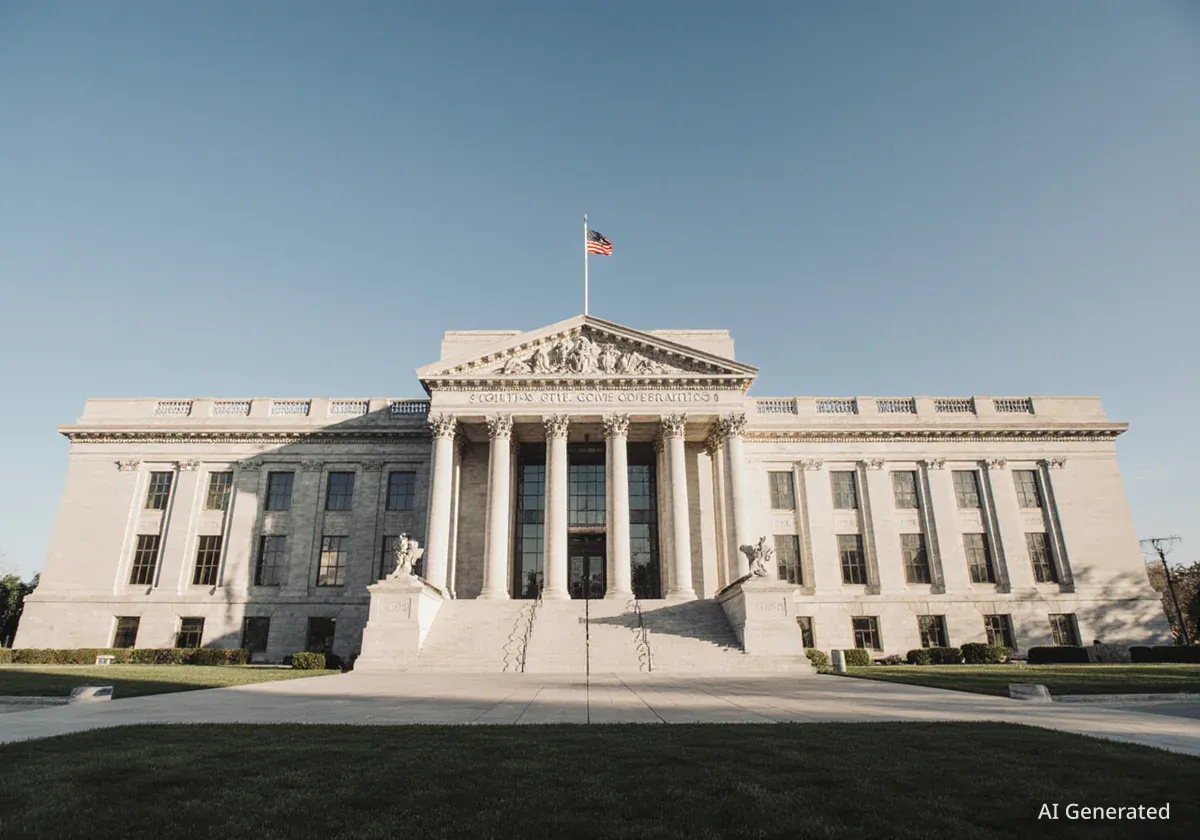Hartsfield-Jackson International Airport in Atlanta has forfeited at least $37.5 million in federal funding. This decision follows the city's refusal to agree to terms set by the Trump administration. These terms require disavowing diversity, equity, and inclusion (DEI) programs.
The world's busiest airport by passenger traffic declined to certify that its operations do not promote DEI initiatives that violate federal anti-discrimination laws. This stance aligns with a January executive order banning DEI programs for entities doing business with or receiving federal money from the government.
Key Takeaways
- Atlanta's Hartsfield-Jackson Airport forfeited $37.5 million in federal funds.
- The city refused to disavow Diversity, Equity, and Inclusion (DEI) programs.
- Federal terms mirror a Trump administration executive order banning DEI initiatives.
- The funds were intended for taxiway repaving and restroom renovations.
- Atlanta's minority and women-owned business programs are under review.
Federal Mandate and Atlanta's Response
The Federal Aviation Administration (FAA) informed Hartsfield-Jackson International Airport about the withheld funds. The airport is owned and controlled by the city of Atlanta. The total amount initially held back was $57 million. Federal authorities indicated that $19 million of this could be released in the next fiscal year if Atlanta complies with the required language.
The money was designated for critical infrastructure projects. These include repaving taxiways and renovating public restrooms. Such projects are vital for maintaining the airport's operational efficiency and passenger experience.
"The city is currently evaluating all options to ensure alignment with our long-held values, local policy, and federal law and we are confident that the airport will be well positioned to receive federal funds in the future," said Michael Smith, a spokesperson for Atlanta Mayor Andre Dickens.
Impact on Minority Business Programs
The federal language could significantly affect Atlanta's long-standing program for minority and women-owned businesses. This program aims to allocate 25% of airport business to minority-owned firms and 10% to women-owned firms.
This initiative has historical roots in Atlanta. The city's first Black mayor, Maynard Jackson, championed it during a $400 million airport expansion. His insistence on minority and women participation was key to the project. This project helped establish Atlanta as the world's busiest airport. The airport complex is now partially named after Jackson, alongside former Mayor William Hartsfield.
Fact: Maynard Jackson's Legacy
- Maynard Jackson was Atlanta's first Black mayor.
- He advocated for minority and women-owned businesses in airport contracts.
- His efforts helped bolster Black-owned businesses in Atlanta.
- The airport is partially named Hartsfield-Jackson in his honor.
These minority business programs are widely credited with fostering the growth of Black-owned businesses in Atlanta. They also reinforced the city's reputation as a place where Black individuals could achieve material advancement.
Legal Challenges and Political Landscape
Atlanta officials attempted to negotiate with the FAA to modify the language, but these efforts were unsuccessful. Meanwhile, several other local governments have taken legal action against the Trump administration's DEI ban.
In May, cities including New York, Chicago, San Francisco, Boston, and Minneapolis filed a lawsuit in Seattle. They argue that President Trump is exceeding his authority by imposing funding conditions on grants approved by Congress. A judge has issued a temporary block, preventing the administration from altering grant conditions for these specific suing governments, but not for others.
Background on DEI Policy
Diversity, Equity, and Inclusion (DEI) policies aim to promote fair treatment and full participation for all people, particularly those from underrepresented groups. These initiatives often include programs to ensure equitable access to opportunities and resources. The Trump administration's executive order seeks to restrict such programs for federal contractors and recipients of federal funds, citing concerns about anti-discrimination laws.
Atlanta Mayor Andre Dickens is currently seeking reelection. He has indicated that the city is considering adjustments to its programs. The goal is to continue receiving essential federal money for various city functions, including airport operations. Mayor Dickens, who is Black, identifies as a Democrat, although Atlanta's officials are elected on a nonpartisan basis.
Future Funding and Airport Projects
Despite the current funding shortfall, Atlanta's airport plans to proceed with its projects. Michael Smith stated that the airport intends to "pursue alternative funding to advance these projects without impacting customers or airport service providers." However, the specific sources for this alternative funding were not disclosed.
Historically, the city's policy has been to finance airport improvements exclusively through income generated by the airport itself. In the fiscal year ending June 2024, the airport reported $989 million in revenue and $845 million in expenses. At that time, the airport had nearly $1 billion in ongoing construction projects.
Smith emphasized that while federal funding is "important," it represents less than 10% of the airport's projected construction program over the next six years. This suggests that the airport has significant self-funding capabilities, which could be leveraged to cover the forfeited federal amounts.
The city's commitment to its DEI principles and minority business programs remains strong. The current situation highlights a tension between federal directives and local governance. Atlanta's leaders are navigating this complex landscape to ensure both airport development and adherence to their long-held values.
Financial Overview of Hartsfield-Jackson Airport
- Revenue (FY2024): $989 million
- Expenses (FY2024): $845 million
- Ongoing Construction: Nearly $1 billion
- Federal Funding Share: Less than 10% of planned 6-year construction.
This financial strength allows the airport some flexibility in seeking non-federal funding for its development plans. The long-term implications of this dispute for other cities with similar DEI policies are still unfolding.





